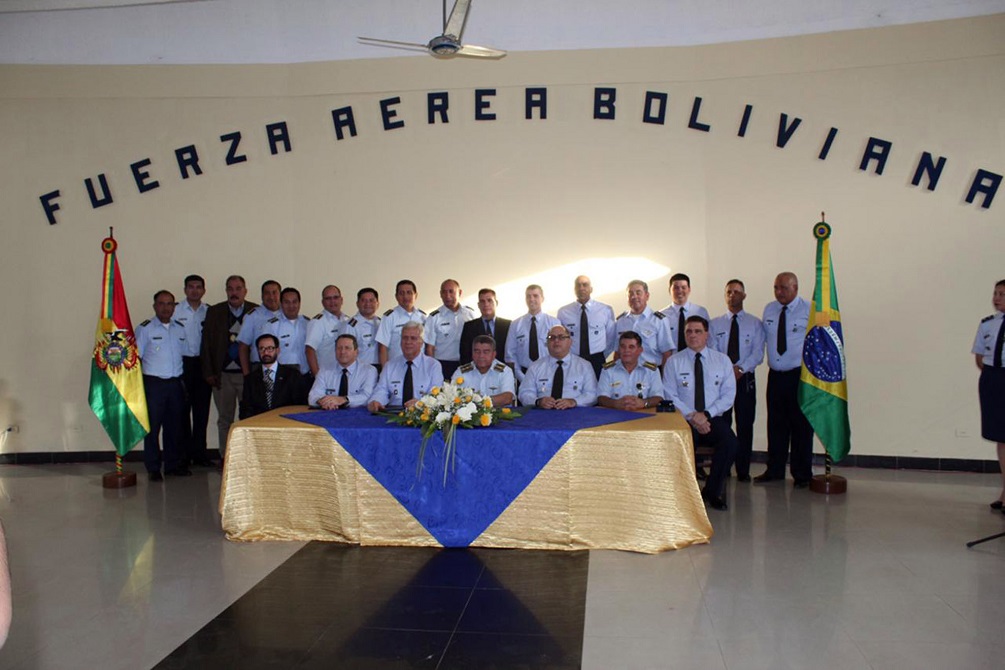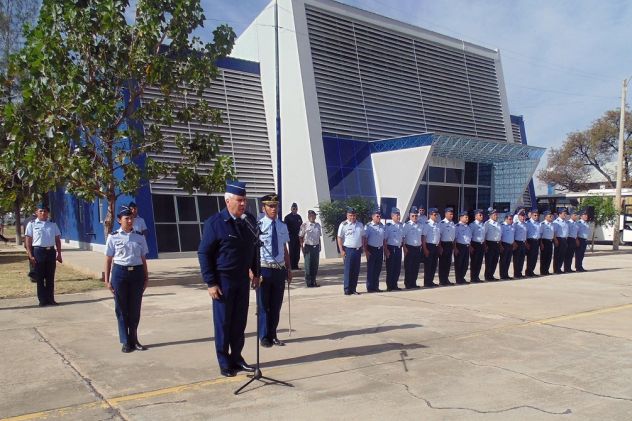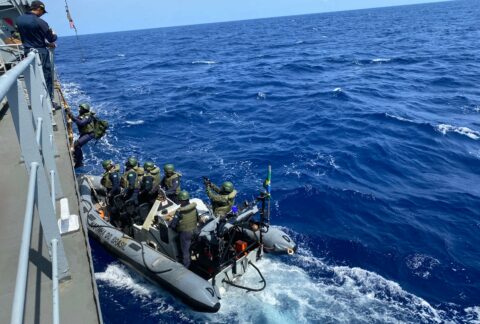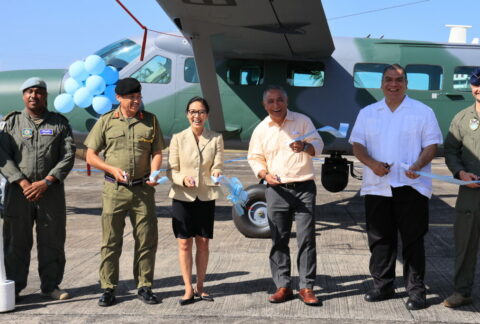Brazil established the Brazilian Aeronautical Mission in Bolivia (MTAB-Bolívia, in Portuguese) to provide administrative, technical, and operational support in the implementation of Bolivia’s Integrated Air Defense and Air Traffic Control System (SIDACTA, in Spanish). MTAB-Bolívia is a unit under the Department of Airspace Control (DECEA, in Portuguese) of the Brazilian Air Force (FAB, in Portuguese), headquartered at the 2nd Air Brigade, in Cochabamba.
MTAB-Bolívia service members directly take part in the creation and regulation of SIDACTA and the organizational structure setup of the Aerospace Security and Defense Command (COSDEA, in Portuguese). “Brazil’s contribution to Bolivia will determine a new course toward air traffic control and air defense, considerably improving security in that airspace, increasing its efficiency and creating economic advantages,” said FAB General Jeferson Domingues de Freitas, DECEA general director.
Currently, the Bolivian system is conventional, based solely on radio frequency and aid for navigation and approach that relies on instrument landing systems and air navigation routes. SIDACTA will implement air navigation in the country, where the airspace will be almost entirely assisted by radar control services.
According to FAB Lieutenant Colonel Gilson Antônio da Silva Sobral, chief of MTAB-Bolívia, the new system will put Bolivia’s air navigation at a level comparable to that of other South American countries. “The Brazilian and Bolivian systems are very similar and their integration will contribute considerably to improve safety, efficiency and, on the military side, reduce the possibility of airspace use for illegal activities,” he said.
MTAB-Bolívia initiated activities on March 25, 2019.
FAB’s technical mission in Bolivia is based on Brazilian experience, which was acquired during the implementation of the Brazilian Air Defense and Air Traffic Control System. “We gave lectures on the work in Brazil to members of COSDEA, the Bolivian Ministry of Defense, the Bolivian Civil Aviation Directorate General, and the regional offices of Airport and Air Traffic Services Administrator, the company responsible for air traffic control in Cochabamba and La Paz,” Lt. Col. Sobral said.
The Brazilian team also presented proposals for SIDACTA’s structure. Team members are also assisting COSDEA with the design of the administrative, operational, and technical structure. “We made a diagnosis of the actual training of existing human resources in the technical and operational areas, as well as an analysis of the sociability of participating service members,” said Lt. Col. Sobral.

Importance of international cooperation
FAB already cooperates with other countries in the area of air traffic control. “Bolivia emerges as an important partner, because we can increasingly integrate air navigation services in our continent,” said Gen. Domingues. “DECEA, as an important agent in South America, recognizes that cooperation between countries who are willing to work together increases the efficiency and safety or growth of each country as an air navigation service provider.”
The officer also highlighted that the geographical position of Bolivia, in central South America, demonstrates the importance of the rational and efficient use of the airspace. “The integration of the Brazilian and Bolivian systems, with the exchange of radar information at the border, will be beneficial not only to these two countries, but to all of South America, a union of forces that will improve safety and efficiency of South America’s traffic control systems,” concluded Gen. Domingues.









